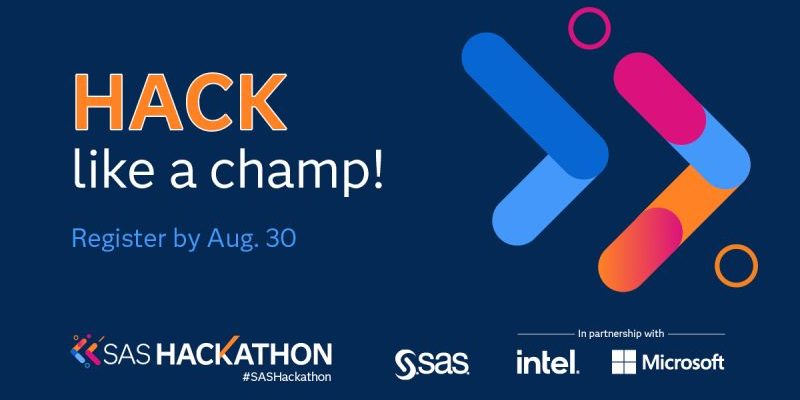Registration closes 31 August 2025 for global, month long, all-digital event.
Artificial intelligence (AI) is changing how we work. As more organisations explore and adopt agentic, generative, traditional and even quantum AI, these technologies increasingly augment existing jobs. And they automate repetitive and data-driven tasks. More than ever, people need data and AI skills to boost their productivity and further their careers.
RELATED: Hackers can now launch phishing attacks for less than $25
That’s where the SAS Hackathon can help. The fifth annual SAS Hackathon, open for registration through 31 August 2025, provides real-word experience that can expand critical and in-demand AI skills.
The SAS Hackathon is for people of all job roles and levels of experience, from data scientists, IT developers and business analysts to executives, consultants and students.
The SAS Hackathon is a global, month long, all-digital event. Teams of participants collaborate and compete to solve business and social challenges using the latest AI and advanced analytics.
Use the latest AI tech
To participate in the actual hacking, which runs 15 September through 10 October 2025, SAS Hackathon teams must select a challenge, identify data to analyse, and register on the SAS Hackathon site by 31 August 2025.
Approved teams will then have access to the latest AI and advanced analytics, including SAS® Viya®, SAS’ cloud-native and cloud-agnostic data and AI platform; SAS Viya Workbench, a cloud-based developer environment for building AI models; and SAS Data Maker, a secure synthetic data generator.
“AI is transformational, but how do you cut through the hype and build relevant, real-world AI skills? Enter the SAS Hackathon,” said Einar Halvorsen, Global Hackathon Producer at SAS. “The hands-on experience and AI contacts you’ll gain will help advance your career, whether you are an established data or business professional or a student just starting out.”
AI in action
In the most recent SAS Hackathon, teams addressed a host of challenges, including:
- Worker safety– used AI and synthetic data technology to develop an AI-enabled heat stroke prevention system for construction workers.
- Manufacturing quality– applied computer vision and machine learning to create an automated system for inspecting injectable pharmaceuticals, improving quality and ensuring product safety.
- Improving decision making– built a tool to verify and assess data sources, spot unreliable information and ensure the use of ethical information to make decisions.
- Nuclear site selection– assessed natural hazard risks in the site selection of nuclear power plants, using AI and machine learning.
- Better patient care– created a system that delivers engaging and safe rehabilitation for stroke patients.
- Saving time and money for banks– automated the extraction of business rules from policy documents and resolved gaps in credit policies.
- Evaluating apparel supply chains– developed a machine learning system that grades factory compliance with established labour standards.
- Optimising water management– created comprehensive climate visualisations of the Dutch river delta.
- Reducing billing errors– built a solution to automate line-by-line auditing of medical bills, reducing errors and preventing losses.
A panel of AI and analytics experts will judge all SAS Hackathon entries, and category and industry winners will be announced this fall.
Industry tracks
Teams from an organisation or made up of individuals can join the SAS Hackathon in several industry categories. Industry tracks for this year’s SAS Hackathon include banking; energy and telecom; health care and life sciences; insurance; public sector; retail, consumer goods and manufacturing; and Internet of Things (IoT, a cross-industry track).
New student track
While students can create or join teams in the industry tracks, this year’s SAS Hackathon offers a new option, Students can register for the Student Individual track using their academic email. Participants in this track will use Cortex, an analytics simulation game developed by SAS with HEC Montréal, Canada’s first business school, to tackle a fundraising challenge.
SAS, a leader in data and AI, produces the annual SAS Hackathon, which is sponsored by Microsoft and Intel.






























